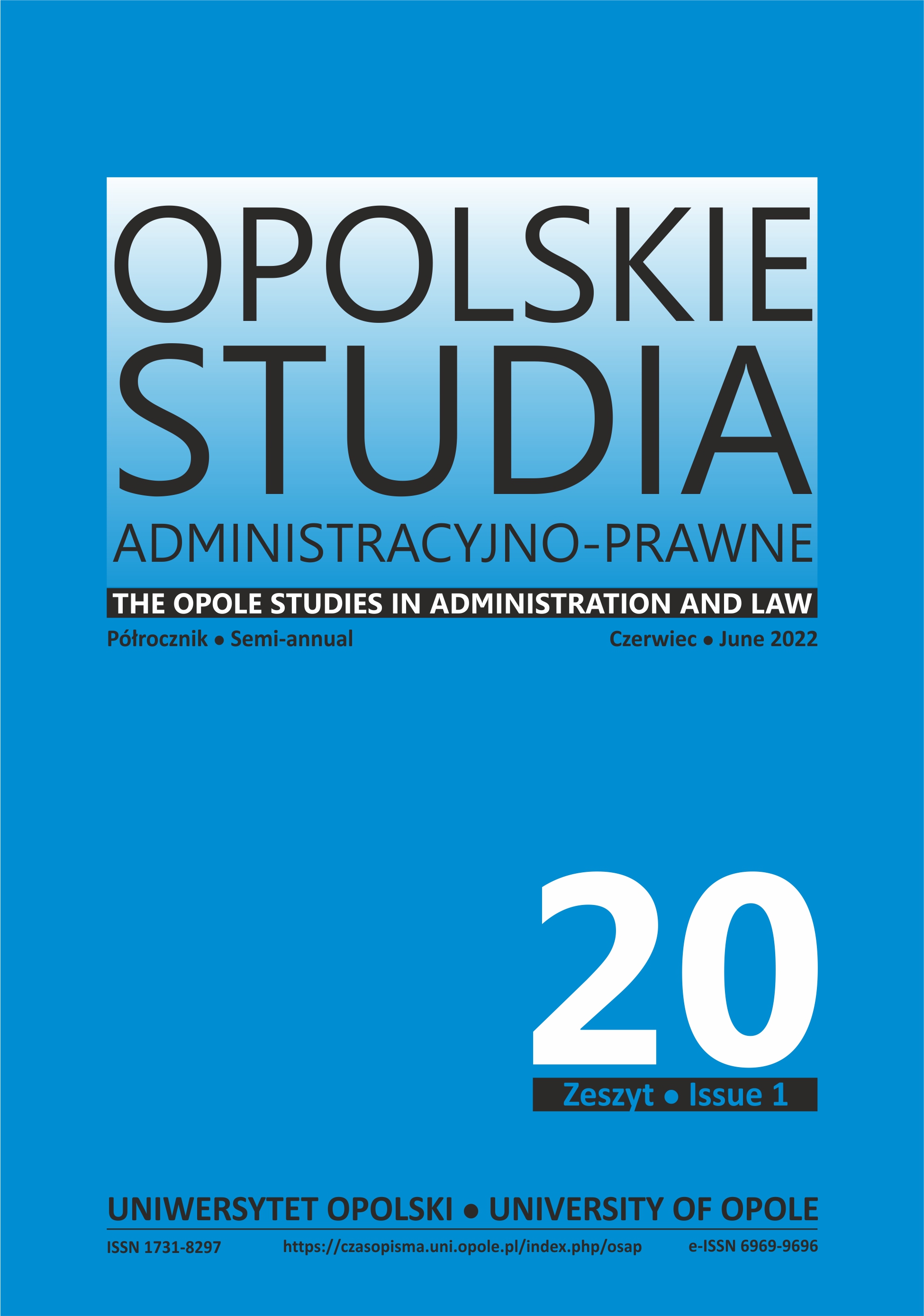Rozprawa zdalna w postępowaniu przed sądami administracyjnymi a prawo do jawnego rozpoznania sprawy
Remote hearing in proceedings before administrative courts, and the right to open hearing
Author(s): Przemysław Krzykowski, Karolina HrymowiczSubject(s): Administrative Law
Published by: Uniwersytet Opolski
Keywords: administrative court proceedings; remote hearing; right to the court; public hearing of the case; the state of epidemic; technical conditions
Summary/Abstract: The subject of this publication is an analysis of the currently applicable regulations of the Act of 2 March 2020, on special solutions related to the prevention, counteraction and combating of COVID-19, other infectious diseases and crisis situations caused by them (i.e. Journal of Laws of 2021, item 2095, as amended, hereinafter: the covid act) and an indication of their shortcomings in the context of implementation of the principle of open examination of administrative court cases. It follows from the overriding principles of administrative court proceedings that the trial should be open and the party should have the right to access the court, control the contested acts and actively participate in it. The right of the individual to a fair and public hearing of a case without undue delay, by acompetent, independent and impartial court has a constitutional dimension. The purpose of the principle of openness is to motivate the court to scrupulously and diligently fulfill procedural obligations and to enable third parties to exercise civic control over the activities of the courts. The authors of the article try to answer the question whether the hearing located in administrative courts and its substitute form, which is a closed session, meet the constitutional standards of open proceedings. An invaluable asset for the party is their personal participation in the hearing and the possibility to freely present their position in the courtroom, directly before the court. This constitutes the exercise of the right to active participation in the procedure. The parties then have the opportunity to express their arguments, and this translates into a sense of treating them subjectively. The authors conclude that the legislator should explicitly define the formula for public access to remote hearing,or modify covid regulations in such a way that the court has the freedom to assess the situation permitting or not to conduct a hearing in the court building. Perhaps a greater range of options would allow for more appropriate solutions that would not violate the principle of open court proceedings and would not restrict the citizen’s right to the court.
Journal: Opolskie Studia Administracyjno-Prawne
- Issue Year: 20/2022
- Issue No: 1
- Page Range: 145 - 163
- Page Count: 19
- Language: Polish

